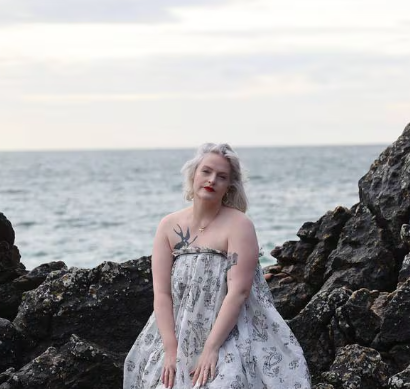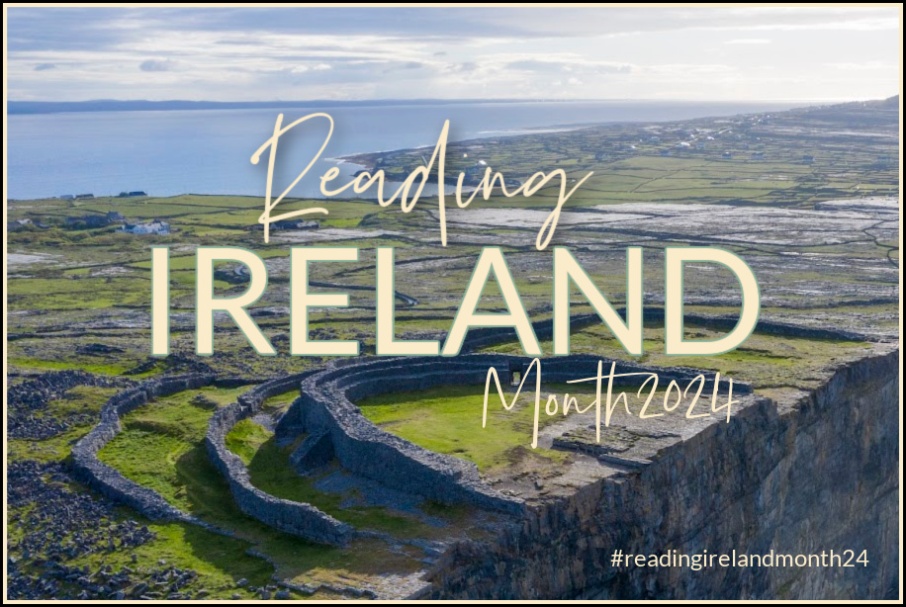March is Reading Ireland month and I have been in an early spring mode since mid Feb, attending to other activities, nature excursions, writing and editing projects, reading and listening to texts while reflecting elsewhere. There is a new energy present that demands it of me and I follow it contentedly.
I did write some notes on one Irish book I have read this month. I love to participate in Cathy’s March reading month, so here it is. I will continue (intend) to read Irish literature this year, although I am making writing and editing more of a priority, so there may be fewer reviews here.
Review
This was an unusual read for me, not the kind of novel I usually choose, one I selected because I admire the Irish publisher Tramp Press, who publish Doireann Ní Griofa and Sara Baume.
Where I End might be horror, but I’m not even sure since I’ve never read that genre before. It was described by the Irish Independent as
‘a truly different Irish novel. One that entwines Irish myth, the reality of human bodies, life and death, and traditional gothic horror in a macabrely beautiful and, in the end, redemptive dance.’
The novel won the Shirley Jackson Award (2023), an award that recognises ‘outstanding achievement in the literature of psychological suspense, horror, and the dark fantastic’, voted on by writers, critics, editors, and academics.
It depicts a short period in the life of a teenage daughter caring for a mute, incapacitated mother, who appears to have been that way since she was a baby. Her paternal grandmother, who also lives with them is about to start a job that will absent her from the house, allowing Aoileann a freedom and recklessness she has not until now experienced.
It reminded me of the experience of reading another Irish author, Jan Carson’s The Firecatchers because it depicts a character who has no faculty for empathy. But the feeling that it evoked was different, White’s character Aoileann compels the reader to want to stay with her and find out if there will be a transformation, a redemption, despite all the signs of foreboding.
The decision to end this thing comes on slowly, like light filling a room after a fathomless night. It began like this:
The opening line of the first chapter. We observe her as carer of ‘the thing’ which I ask myself, is that her mother? And when she occasionally uses that word, I realise, yes it is.
There is a question I have never asked. On the nights that we find her far from her bed, her ragged hands reaching towards nothing, the idea prods me. Is the bedthing trying to get away? Are we doing this to her?
This the mystery is seeded. Why does this young woman who daily cares for her immobile mother refer to her in such a way? What happened that this situation should have come about and why doesn’t anyone know what goes on here? Why do people look at her strangely and spit as she passes by?
In the opening pages before chapter one, she describes the three things that describe her limited world. My mother. My home. My house. A woman trapped inside a body, a small insular community living on an island, three women living in a house no one visits, except the man.
The islanders all share a similar look, the result of genetic material passed back and forth for so many generations – it has distilled into a distinct, unpleasant appearance. Móraí has it too. Me, less so as my mother is from the outside; Dad is the same as me – a little watered down because his father was also a mainlander.
It is a disturbing read that the arrival of a visitor, an artist with a young baby at first seems like an opportunity for growth and healing, but increasingly becomes another avenue of dysfunction, a creeping fear of what is in danger of happening.
It speaks to both the fear and allure of the outsider, of the extremes of dysfunction that a lack of maternal nurturing and love can bring and the desire to overcome and escape all of that.
The writing and descriptions were brilliant, moving between enticing literary prowess and elements of the macabre. Somehow this is balanced out in a way that made me both wary of what was coming but unable to stop turning the pages.
Very well portrayed, a haunting, compelling read.
Further Reading
Irish Times Interview, Sophie White, Where I End – a horror about a young woman’s attempts to find motherly love, and to get to the bottom of family secrets that made her who she is. Niamh Donnelly
Sophie White, Author
SOPHIE WHITE is a writer and podcaster from Dublin. Her first four books, Recipes for a Nervous Breakdown (Gill, 2016), Filter This (Hachette, 2019), Unfiltered (Hachette, 2020) and The Snag List (Hachette, 2022), have been bestsellers and award nominees. Her fifth book, the bestselling memoir Corpsing: My Body and Other Horror Shows (Tramp Press, 2021), was shortlisted for an Irish Book Award and the Michel Déon Prize for non-fiction.
Sophie writes a weekly column ‘Nobody Tells You’ for the Sunday Independent LIFE magazine and she has been nominated for Journalist of the Year at the Irish Magazine Awards, Columnist of the Year at the Irish Newspaper Awards and for a Special Recognition Award at the Headline Mental Health Media Awards.
TV adaptations of her first two novels are in development and she is co-host of the comedy podcasts Mother of Pod and The Creep Dive. In addition to writing literary horror, Sophie has written commercial fiction titles for Hachette, such as the recent My Hot Friend.




I like a literary horror and this one sounds good!
LikeLiked by 1 person
I will be very interested to read what you think of this and how it fits in that genre.
LikeLiked by 1 person
I’ll have to see. I’m not at all a fan of horror, but I see you’re not either, and still enjoyed it.
LikeLiked by 1 person
Yes, I was a little afraid going in, and I can’t really say if this is typical or not, but it was so evocative of place and thought provoking in terms of the effect of an imagined girl that has never been nurtured that I think it would be a good book to discuss. Ultimately I read it on the strength of Tramp Press’s other authors, so felt it was safe to read outside my comfort zone through their pick.
LikeLiked by 1 person
Yeah, but I’m not a Sara Baume fan …
LikeLiked by 1 person
Well I would say that Sophie White isn’t like either of the authors I mentioned, except in her uniqueness. Her other books are commercial fiction, so there is an ease to reading her prose. This is more literary but very accessible, go on try it and see! 🙂 If the library has it. 😉
LikeLiked by 1 person
It hasn’t. But I won’t close my mind to this book.
LikeLiked by 1 person
I haven’t even heard of Sophie White and she and this book sound amazing! Thank you for putting her on my radar!
LikeLiked by 1 person
Thank you Jane, I do hope you come across this book and pick it up like I did. It is definitely a thought provoking, albeit creepy read!
LikeLiked by 1 person
This was one of my favourite books of last year, I thought it was amazing. I love how it wasn’t tied to any particular genre and how there was real beauty in the writing despite the subject matter. So glad you enjoyed it.
LikeLiked by 1 person
Yes, there was something so alluring about the way it was written, so evocative and yet that knowing that something is not quite right, that sense of unease throughout, being with the character who is causing it.
LikeLiked by 1 person
Pingback: Reading Ireland Month 2024 is here!
The pacing sounds appealing; she seems to have mastered the art of piqueing your interest JUST enough to keep you turning the pages!
LikeLiked by 1 person
Oh yes, from the very first pages Marcie, it was a very alluring read.
LikeLike